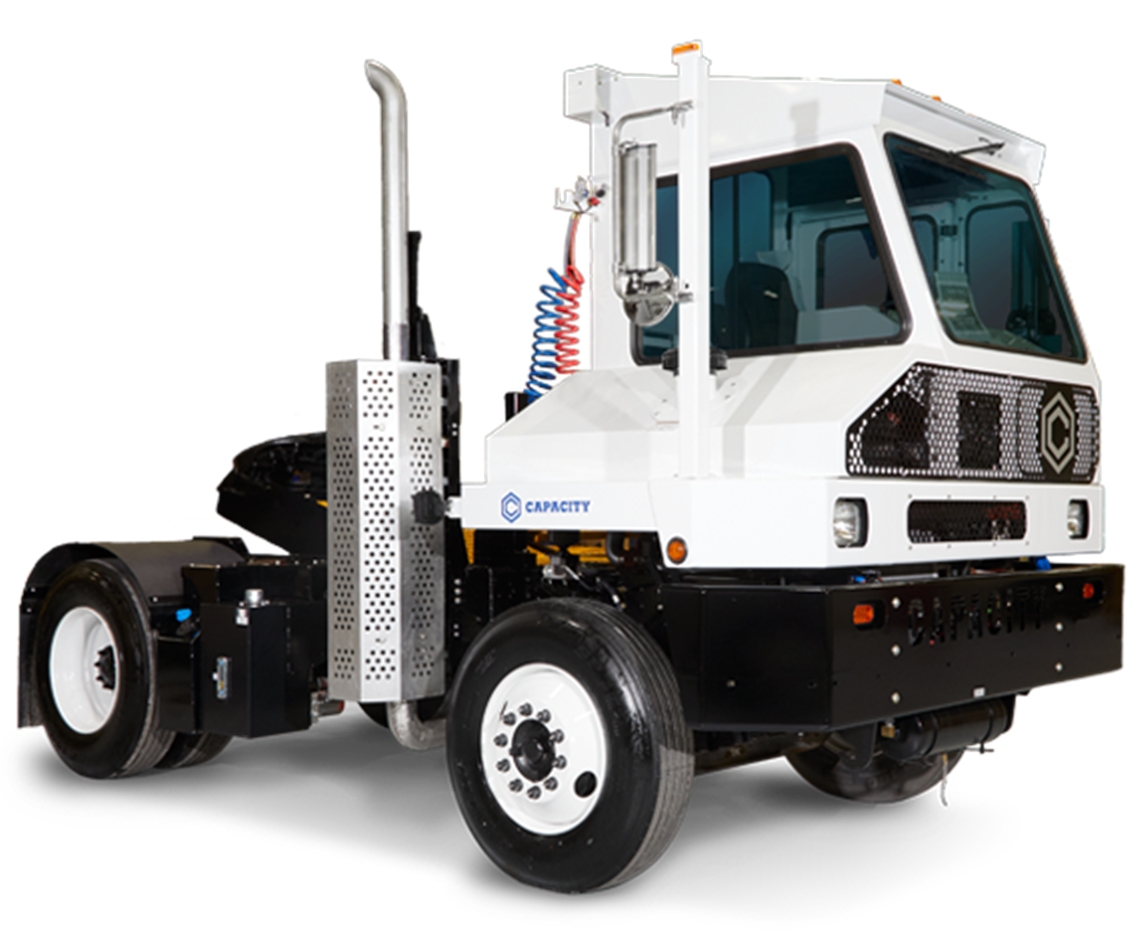GTI prepares fuel cell yard trucks pilot
02 March 2021
Performance verification is nearing completion on new zero-emissions fuel cell electric terminal tractors, and a first-of a kind pilot project is preparing to launch. For 16 months, GTI, an Illinois-headquartered independent non-profit R&D organization and its partners, have been designing and assembling the tractors in a project called Zero Emissions for California Ports (ZECAP). The project will assess vehicle operation in a demanding, real-world cargo-handling application. The hydrogen fueling equipment is in final assembly and slated for installation this spring, along with the delivery of trucks.
 Two Capacity of Texas Trailer Jockey Series TJ9000 gliders, such as the one shown here, are being fitted with BAE Systems electric drive powertrains and Ballard Power Systems FCveloCity-HD85 85 kW proton exchange membrane fuel cells, as part of a pilot program at the ports of Los Angeles and Long Beach.
Two Capacity of Texas Trailer Jockey Series TJ9000 gliders, such as the one shown here, are being fitted with BAE Systems electric drive powertrains and Ballard Power Systems FCveloCity-HD85 85 kW proton exchange membrane fuel cells, as part of a pilot program at the ports of Los Angeles and Long Beach.
More than 1800 terminal tractors, also called yard trucks, operate at the ports of Long Beach and Los Angeles, which is more than half of all cargo-handling equipment (CHE) at the facilities. Terminal tractors are the single largest source of CHE emissions but are more difficult to convert to zero-emission fuel cells or batteries because of their variable duty cycles and fundamental requirements for power, versatility and durability.
In the ZECAP program, project partner TraPac will operate two fuel cell electric yard trucks for 12 months. The trucks are Capacity of Texas Trailer Jockey Series TJ9000 gliders configured with BAE Systems electric drive powertrain capable of peak propulsion power of 200 kW (270 hp) and Ballard Power Systems FCveloCity-HD85 85 kW proton exchange membrane fuel cells. The Capacity truck can store 9.1 kg of hydrogen at 350 bar and will fill at an onsite Hydrogen Technology & Energy Corp. (HTEC) hydrogen fueling station with 182 kg storage capacity.
Other project partners are Frontier Energy and ZEN Clean Energy Solutions. The California Air Resources Board (CARB) funded the project through a grant.
“We designed the project to maximize the time the trucks will be in service,” said Bart Sowa, GTI’s project manager. “TraPac is a 24-hour operation. The fuel cell yard trucks are expected to operate for two shifts and refill in minutes, with minimum disruption to TraPac’s operation. We’ll collect and analyze real-time operating data to evaluate safety, reliability, efficiency, and ability to meet operational requirements.”
This project is a step toward achieving the ports of Long Beach and Los Angeles goal of using 100% zero emission cargo handling equipment by 2030.
The $11 million project is part of California Climate Investments, a statewide initiative that puts billions of cap-and-trade dollars to work reducing greenhouse gas emissions, strengthening the economy, and improving public health and the environment – particularly in disadvantaged communities.
POWER SOURCING GUIDE
The trusted reference and buyer’s guide for 83 years
The original “desktop search engine,” guiding nearly 10,000 users in more than 90 countries it is the primary reference for specifications and details on all the components that go into engine systems.
Visit Now
STAY CONNECTED




Receive the information you need when you need it through our world-leading magazines, newsletters and daily briefings.
CONNECT WITH THE TEAM












